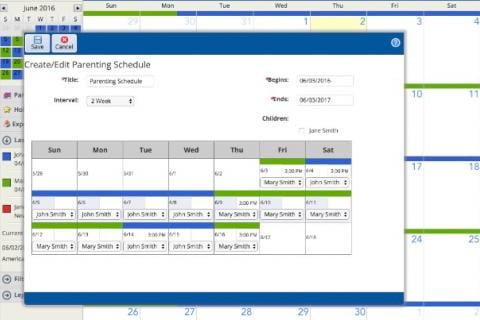When You Can’t Agree on Child Arrangements After Divorce

Agreements between co-parents during divorce proceedings can be hard to attain. With emotions at an all-time high and resentments from past arguments brought to the foreground, parents may have difficulties seeing past the storm to work to create a comprehensive parenting plan.
Conflict can, unfortunately, become a priority in these situations. While tough to admit, parents finding themselves unwilling to compromise when it comes to their shared parenting arrangements may be temporarily placing the needs of their children on the back burner.
When this happens, sometimes the courts must step in and take control over the creation of a parenting plan. However, this is far from ideal. Courts are often incredibly busy and must make a decision about a family in a relatively short amount of time.
Exhaust all options
It’s incredibly important that co-parents exhaust all available options when trying to come to an agreement about their parenting plan. Raising children from separate households is a tough situation to acclimate to. It’s not surprising that parents sometimes have a hard time seeing the positive in deciding their parenting schedule and the many other aspects of shared parenting. It’ll often feel like no one is happy with the decisions being made.
Nevertheless, parents should strive to come to those decisions mutually, whether independently or with the assistance of solicitors or through a neutral, third-party mediator. This process may be the most difficult of a divorce, but the effort put into those decisions will help parents put their best foot forward in their new co-parenting relationship.
Rather than contending with an arrangement created by a relative stranger, co-parents who work together to create a plan that works for everybody begin their co-parenting relationship with a spirit of cooperation. That can go along way in smoothing the adjustment to shared parenting in those first few months.
Court involvement
In most cases, in order for the courts to get involved with determining child arrangements, parents must demonstrate that they've already attempted to come to a mutual agreement through mediation. This requirement can be waived in certain cases with extenuating circumstances, however.
There are several different orders for which parents can petition the court, including child arrangements orders and specific issue orders. A child arrangements order makes a decision about whom a child lives with, spends time with, or has contact with, as well as where they live, spend time with, or have contact with any person. A specific issue order deals with questions about a child's upbringing, such as where to send a child to school.
Throughout the entire process, judges and magistrates will always prioritise the welfare of the children involved. First, at the directions hearing, the judge or magistrate will ask questions to determine why parents cannot agree, the topics they're having trouble agreeing about, and whether or not the children are at all at risk. Typically, a representative from the Children and Family Court Advisory and Support Service (Cafcass) will also be present.
If parents are unable to come to an agreement during the first hearing, the judge or magistrate overseeing the case will provide further directions to the parents. They can ask Cafcass to prepare a report about the family's situation and can also direct parents to attempt to reach an agreement with the help of a mediator. Parents requesting a child arrangements order may also be required to attend a 'Separated Parents Information Programme' course.
Certain situations will necessitate the involvement of the courts, so it’s important to be informed of steps involved in requesting either a child arrangements or specific issue order. But if possible, parents should make every effort to work collaboratively toward a solution, always with the best interests of their children in mind. Co-parenting is a long-term relationship, during which parents will have to work together to resolve conflict and disagreements mutually, and parents should strive to begin that relationship in a spirit of cooperation.
More on parenting arrangements
NOTE: Many state and federal laws use terms like ‘custody’ when referring to arrangements regarding parenting time and decision-making for a child. While this has been the case for many years, these are not the only terms currently used to refer to these topics.
Today, many family law practitioners and even laws within certain states use terms such as ‘parenting arrangements’ or ‘parenting responsibility,’ among others, when referring to matters surrounding legal and physical child custody. You will find these terms as well as custody used on the OurFamilyWizard website.

